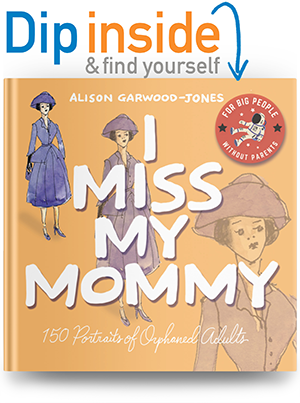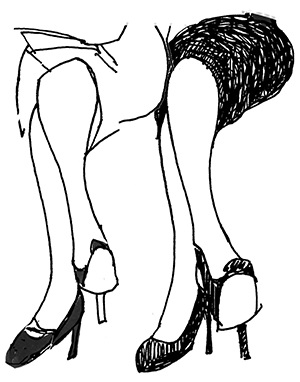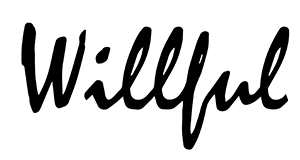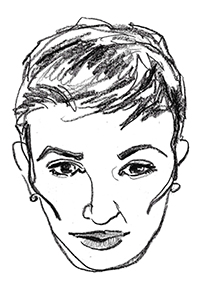RIP Homemakers
October 27, 2011
One of my employers died last night.
Homemakers Magazine was 45 years old, but her time had come. A combination of factors did her in: the economy, the rise of digital media, questions about her relevance in the face of competition (Canadian Living, Chatelaine, Good Housekeeping). D.B. Scott’s obit is worth the read.
Despite her pre-Friedanian name, Homemakers was a trailblazer in women’s rights. Her content was always relevant and never frivolous. Former editor Sally Armstrong travelled the globe filing stories on the state of women’s lives in the developing world, often compromising her own safety to do so.
Truth be told, it’s not a fun time to be a staff journalist. I doubt the average citizen knows that. Many assume the romance of journalism continues based on the Woodward/Bernstein plucky model. But too many printed magazines and newspaper are hanging on by their cuticles right now. Budgets are down, work is up and shareholders and publishers are pounding fists on desks demanding results. At the back of the office, digital departments are wailing, “Throw more money our way. Can’t you see the future is now?” Too many people in power, though, continue to be invested in the old way of doing things, hoping this is just a blip in the profit margins because print still feels sexier, more prestigious.
Meanwhile, the landscape continues to explode and burn like the oil wells in the first Gulf War. Talented staffers are being spit out on the street. But after the drama of trying to hang on, and sacrificing so much in their personal lives and health to make it happen, the silence is welcome in many cases.
This was my final article for Homemakers. (* P.S. fellow writers: I only agreed to sign a “one-off” contract with Transcontinental provided they pay me considerably more money for the rights they took back. For those of you who feel timid asking for more, I recommend joining Derek Finkle’s agency).
And here’s a reprint of related post about living the dream (and frying out in the process) written last spring. If you’re under 27, this won’t make any sense. Go back to blogging for free. :)
 Working at a magazine or a newspaper lets you write about life, but really experiencing it is another matter.
Working at a magazine or a newspaper lets you write about life, but really experiencing it is another matter.
In your twenties, that’s fine. You’re happy to let your job define you. You’re also totally thrilled to be giving yourself over to the romance of print media. Your friends who work at the bank couldn’t be more jealous.
In your thirties, the life you’ve chosen can start to take its toll. But you never admit that (your friends still want to be you). Dashing around town collecting swag bags begins to feel empty.
By your forties, the pace can become unacceptable, even if the act of writing is still meaningful.
Getting fired is sometimes the only way to escape this life of relentless deadlines.
This is what happened to Dominique Browning (pictured above at her home in Rhode Island). Browning is the former editor in chief of the now defunct House & Garden, and she writes with searing honesty about her life before and after Condé Nast in last Sunday’s New York Times Magazine.
Here’s a taste:
The thing about running a magazine is that there is always too much to do. I liked not being in control of my time — I was always busy. I didn’t want time to think things over, things like feeling guilty about spending more time with my office mates than with my children; feeling sad that those children were leaving home; or feeling disappointed in love or frightened by terrible illness. Everything else, in other words. The demands of my job kept me distracted.
A lot of actors say they get into film and TV because they don’t want to play themselves.
I wonder how many editors can relate?




























This post nicely touches on the interesting evolution of modern personal identity. In the past, we focused most of our self-definition on our personal history, namely that of our families (ie. I'm Italian, he's a Vanderbilt, her family was one of the first families to settle in the area, etc.). Now many of us carve out our identities based on our careers. What is one of the first questions we ask and are asked when we are introduced to new people? "And what do you do?" Most of us are fortunate enough to be able to have some control over our career paths, and it is very easy, and indeed tempting as you have pointed out, to become wrapped up in the lifestyle we create for ourselves. I sometimes wonder if this is the first time in our social history that people have had such a difficult time finding balance between the professional identities of their creation and the simple identities of just being themselves (which is a whole other puzzle).
"I sometimes wonder if this is the first time in our social history that people have had such a difficult time finding balance between the professional identities of their creation and the simple identities of just being themselves (which is a whole other puzzle)."
That's a really great question, Emily.
I don't think this is an issue that relates strictly to editors. Society uses two major measurables to define a person's success – money and power/fame. How good a mother you are, how kind a person you are, how much you sacrifice for the good of the earth – all these are extremely difficult to measure and define. So, it's sometimes easier to just become consumed by career. You said it yourself – the bankers were envious of you. Not many people are envious of the person driving an old Honda because all their savings go toward caring for their disabled child. It's a lot easier to brag about a successful career than a successful… anything.
Love the blog design, by the way!
Well said, Danielle.
I think quiet deeds get noticed by the people who count.
I hope!
Thanks for checking out my blog.